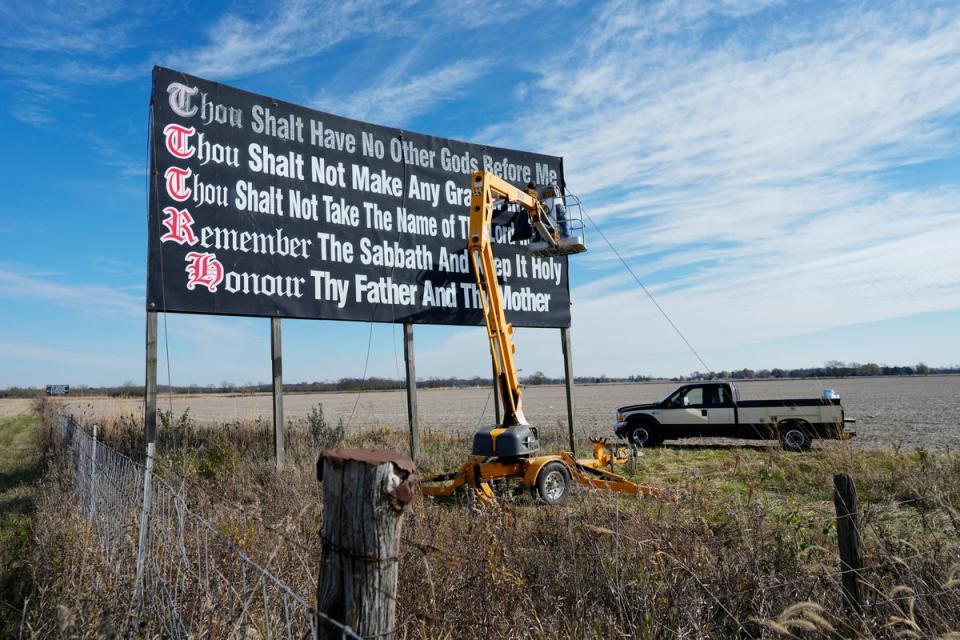A US state has become the first in the nation to require all public schools to display the Ten Commandments in classrooms.
The Louisiana law, signed Wednesday by Gov. Jeff Landry, a right-wing Republican, requires all public classrooms, from preschools to colleges, to display posters of the Ten Commandments in “large, easily readable font.”
“If we want to respect the rule of law, we must start with Moses, the first lawgiver,” Landry said as he signed the law into law.
Critics have vowed to challenge the law in court on constitutional grounds.
But supporters say the Ten Commandments have historical as well as religious significance, so state funds should not be used for the posters.


The posters will be accompanied by a four-paragraph “background information” and must be installed in classrooms by early 2025.
The controversial law allows but does not require the Declaration of Independence and several other items, including the Northwest Ordinance, which paved the way for new states to join the union, to be displayed in public schools.
Civil rights groups vowed to challenge the law in court within hours of it being signed into law.
The American Civil Liberties Union argued that the law would prevent students from receiving an equal education and make children of different faiths feel less safe at school.
“Even among those who believe in some version of the Ten Commandments, the specific scriptures they follow may vary depending on religious denomination or tradition. The government should not take sides in this theological debate,” the group said.
The controversial law comes during a new era of conservative leadership under Landry, who took office as Louisiana governor in January, replacing two-term Democrat John Bel Edwards.
Similar bills have been proposed in other states, including Texas, Oklahoma and Utah, but so far only Louisiana has enacted one.
In 1980, the U.S. Supreme Court ruled that a similar Kentucky law was unconstitutional, violating a provision of the U.S. Constitution that states Congress “shall make no law respecting an establishment of religion.”
The High Court ruled that the law had no secular purpose, but rather served a clearly religious purpose.


